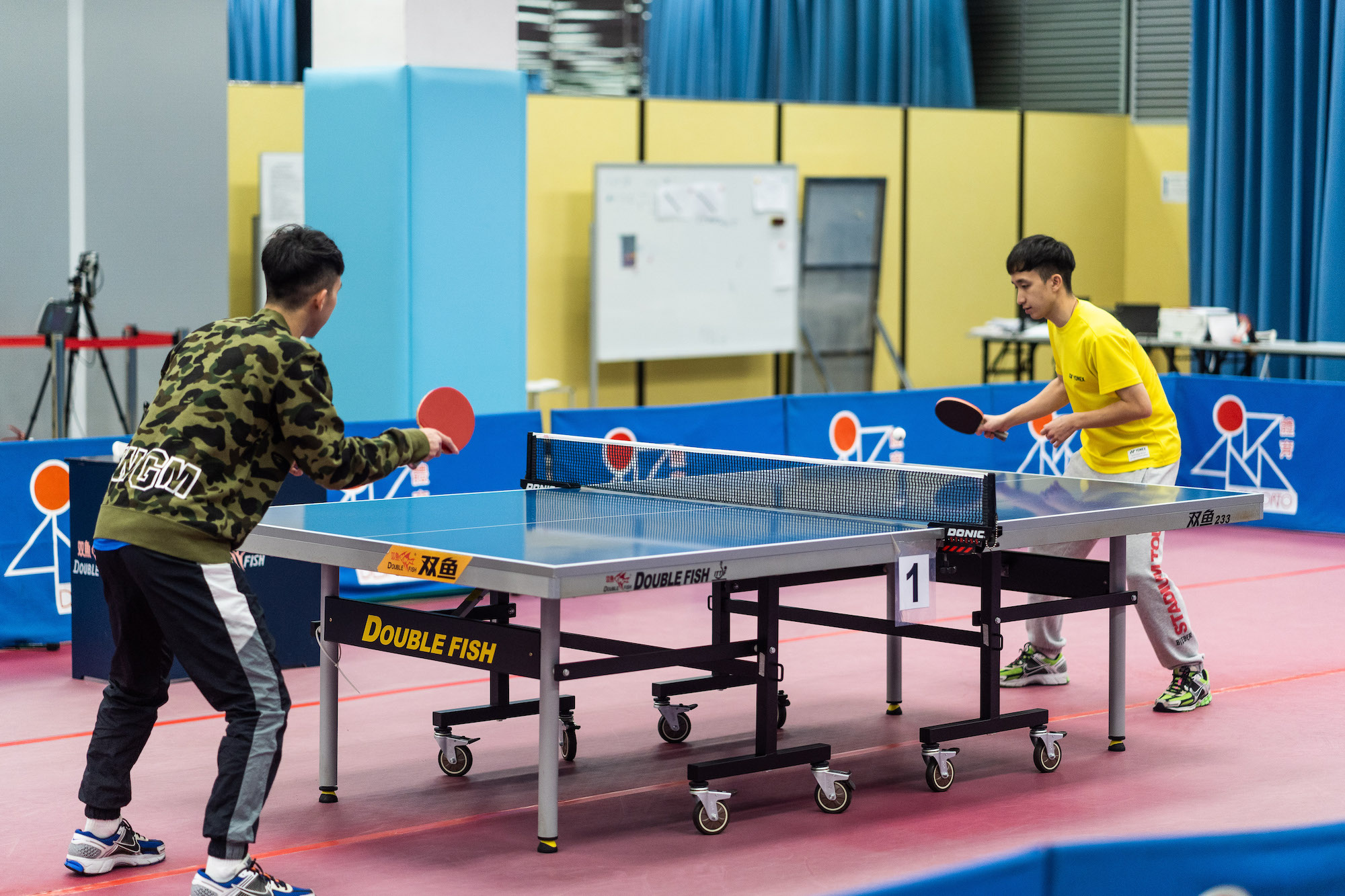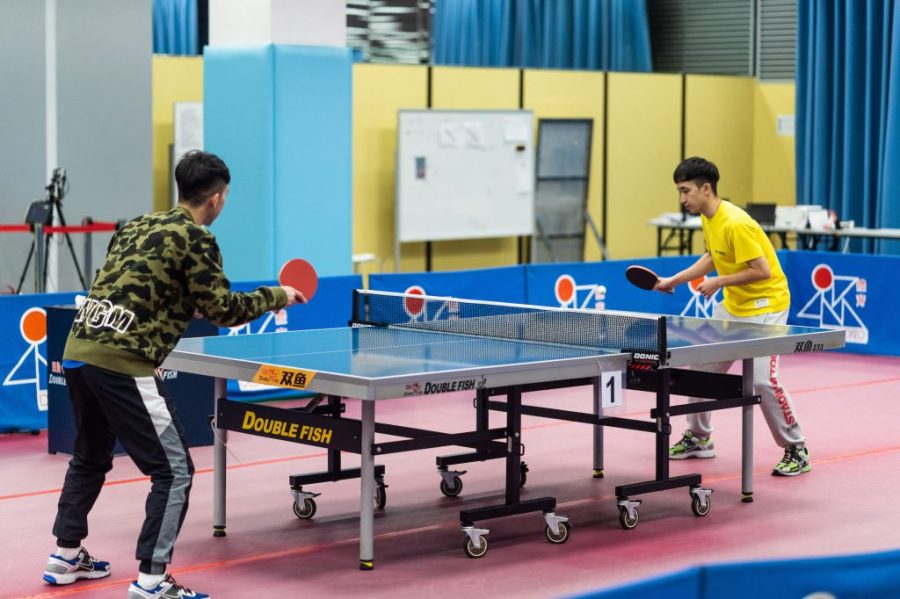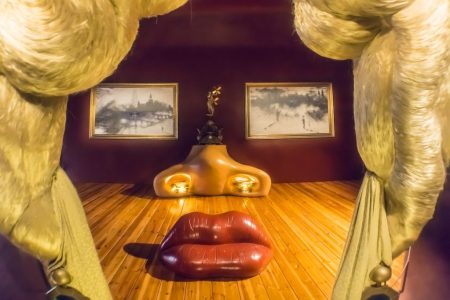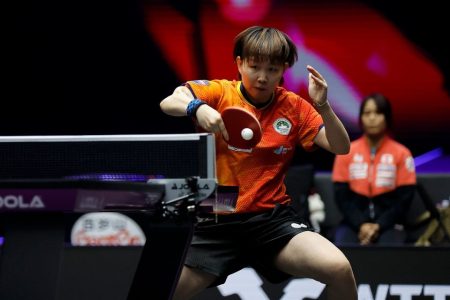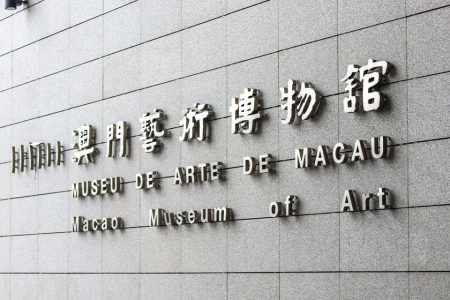Walk by any sports facility in Macao these days, and you’ll hear the click-clack of wooden paddles volleying plastic balls. Across the city, people of all ages and abilities flock to ping pong tables after work and on weekends, a surefire sign of the sport’s surging popularity.
With easy-to-learn rules and standard 274-centimetre tables available in most sports facilities, table tennis has become one of Macao’s most accessible, inexpensive games to play.
“All that’s needed is a portable paddle and you can already start a game,” says Leung Heng Ming, chairman of the Macau Table Tennis Association (MTTA). “The sport also makes sense for compact Macao – you can fit at least nine table tennis tables in a single basketball court – plus you can play rain or shine on an indoor table.”
But ping pong had to come a long way to become one of the city’s most beloved sports. From its roots in Victorian England to its global expansion via Portuguese trade routes, here’s how table tennis became one of Macao’s most popular pastimes.
Crossover appeal
Believed to have emerged in Victorian England in the late 19th century as a spin-off of “Real Tennis” – a cross between tennis and racquetball – ping pong was the after-dinner parlour game of choice among British elites.
According to the UK’s National Army Museum, British officers in India and South Africa in the 1880s developed an early version of table tennis, having created a makeshift game using cigar lids as paddles, wine corks as balls and books as a net.
The game gradually spread across Europe, and by 1914 the game had appeared in Macao courtesy of Portuguese traders. The game grew quickly. Less than a decade later, Macao had at least five independent table tennis teams. By 1929, the city even had its own Table Tennis Federation (TTF), which organised local matches. In 1931, the TTF held the first match between Macao and Hong Kong at the now-defunct Cheng Peng Theatre.
From then until the early 1940s, at least 14 tournaments took place annually. However, when World War II broke out, tournaments hit a standstill until 1949, when competitions between Macao and Hong Kong resumed. That same year, local players established the MTTA, and soon the Portuguese administration granted the MTTA recognition as the city’s official table tennis organisation, paving the way for subsidies and support.
Since then, the popularity of table tennis has skyrocketed, as interest in the sport has moved eastward (an estimated 300 million people in mainland China play ping pong at least occasionally, for example).
In 2007, the Sports Bureau and the MTTA established the city’s first Table Tennis Youth Academy, where hand-picked athletes aged 6-14 can take part in beginner- and intermediate-level training.
The academy has enrolled more than 1,000 students since opening and expects to recruit another 120 in 2022. After the age of 14, elite players – those who crack the top 8 in under 18 open matches and top 4 in under 15 open matches at MTTA-recognised events – are invited to join the Macau Table Tennis Training Team.
Today, MTTA Chairman Leung estimates that there are around 70 local teams and over 410 table tennis players who are members of the association. The sport is so popular among youth, he adds, that about two-thirds of the association’s members are between 6 and 25 years old.
Macao’s first ping pong pros
In Macao, many young people have dedicated themselves to the sport, and the results are starting to show. Twin brothers Cheong Chi Cheng and Cheong Chi Chun picked up the sport at the age of 8, when they took extracurricular table tennis lessons with the MTTA. They would go on to become Macao’s first full-time professional table tennis players.
“We started quite young and because most of our friends play it too, we’ve continued,” says Cheong Chi Cheng, now 22. “Win or lose, we love the game no matter what … Although winning certainly is enjoyable as well.”
The Macau Table Tennis Training Team, which helps junior to elite-level athletes develop their skills and gain access to international competitions, recruited the twins when they were 13. According to their coach Li Xiang, the twins “love table tennis very much [and take] their training very seriously”. That training is more arduous than many realise, too. The twins train six days a week for three to six hours at a time.
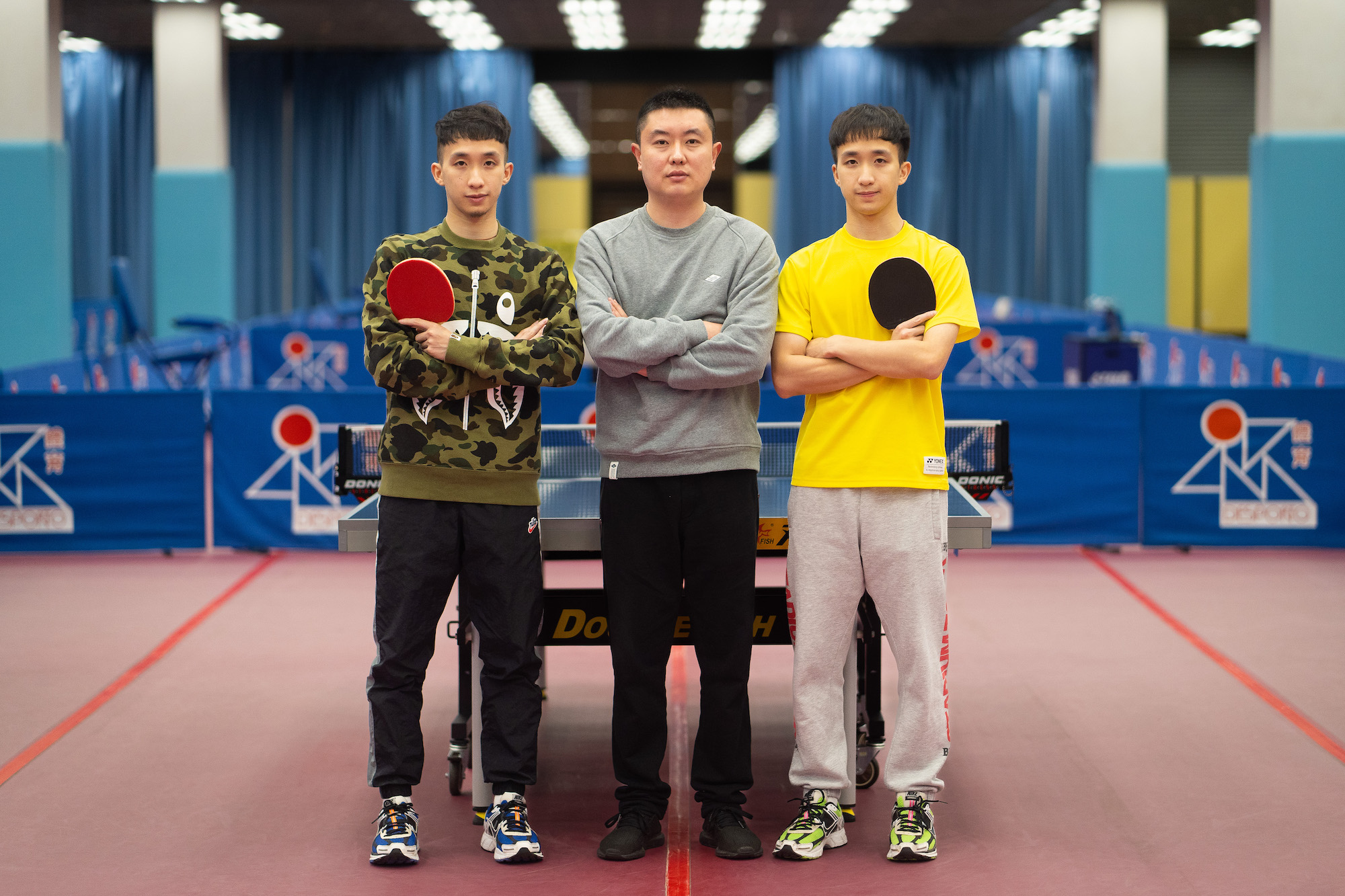
That almost obsessive dedication helped them become Macao’s first full-time, professional table tennis athletes at the tender age of 20. The twins then decided to take a three-year break from their studies at Macao Polytechnic University to prepare for top-level competitions.
In 2019, they joined Henan’s regional table tennis team – ranked eighth in the country – in Hubei, central China, their coach’s home province. Over the past two years, they have also trained with China’s national team to learn new techniques and practice among elite players.
In January this year, Cheong Chi Cheng represented Macao at the WTT Champions tournament at the Tap Seac Multisport Pavilion, a moment he recalls with pride. Despite some early jitters, when it came time to play, he says he felt “relaxed” and “at ease” since the competition was in his hometown.
Now, both twins are preparing for the Asian Games, which will take place in Hangzhou, China, in September 2022.
The ping pong path to glory
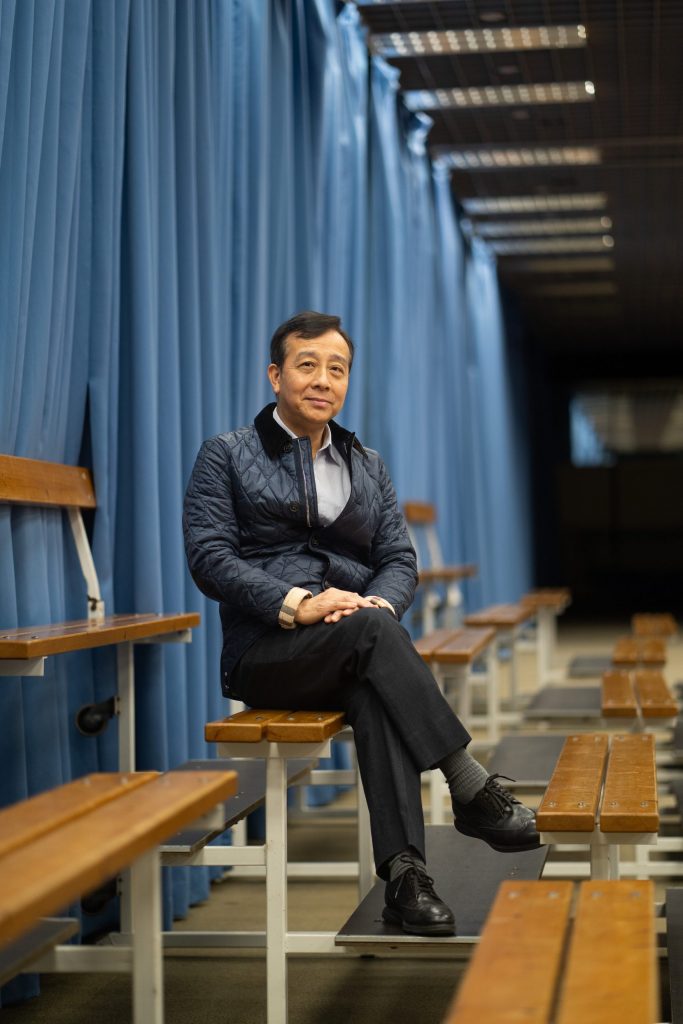
The twins’ success and high-profile matchplay have inspired many parents to enrol their children in the sport. According to Leung of the MTTA, the association saw a surge in interest last year after the WTT Macao 2020, the first event of its kind in the city, which welcomed 16 of the world’s top players.
“We were already receiving around 350 applicants for our extracurricular table tennis lessons three years ago, but then it increased after the games,” he says.
MTTA, which has held after-school lessons at the Lin Fung Sports Centre every day since 2007, has had to be more selective, he adds. Now the association accepts just 105 players per year while offering special classes on Tuesdays and Thursdays for the top 10 performers.
In recent years, the Sports Bureau of Macao has joined efforts to further develop the sport locally. It has installed over 60 table tennis tables in eight different sports pavilions. Macao residents are making the most of them. In 2021 alone, the bureau recorded over 286,000 people (including repeat players) using the table tennis facilities.
The bureau has also supported MTTA with MOP 3 million per year in subsidies since 2019. The funds have allowed the association to hire professional coaches, access exclusive training venues at the Macao East Asian Games Dome, organise competitions and arrange intensive training for professional athletes in and outside Macao.
There are now plans to host the WTT Champions tournament in Macao annually as well. Sports Bureau President Pun Weng Kun says he hopes for “our local athletes to participate in this competition” because it’s a “valuable opportunity” to compete against the world’s best players.
The bureau plans to continue promoting table tennis as a “competitive sport” and a “sport for all”, he adds, working to cultivate local table tennis talents and find Macao’s next rising stars.
It is an ambitious goal, but one Leung firmly stands behind. “It’s a very good workout,” says Leung, a 66-year-old who has played ping pong every day since he was in his teens. In fact, he believes he owes his good health and nimble movements to the sport. He even credits the sport for sharpening the coordination, endurance and reflexes of those around him.
“Our head secretary is 85 and our vice-chair is 101, but they are still active and we all have good eyesight, thanks to table tennis.”
This article has been produced in collaboration with the Macao Magazine. The full story can be read in their April 2022 #69 issue.
